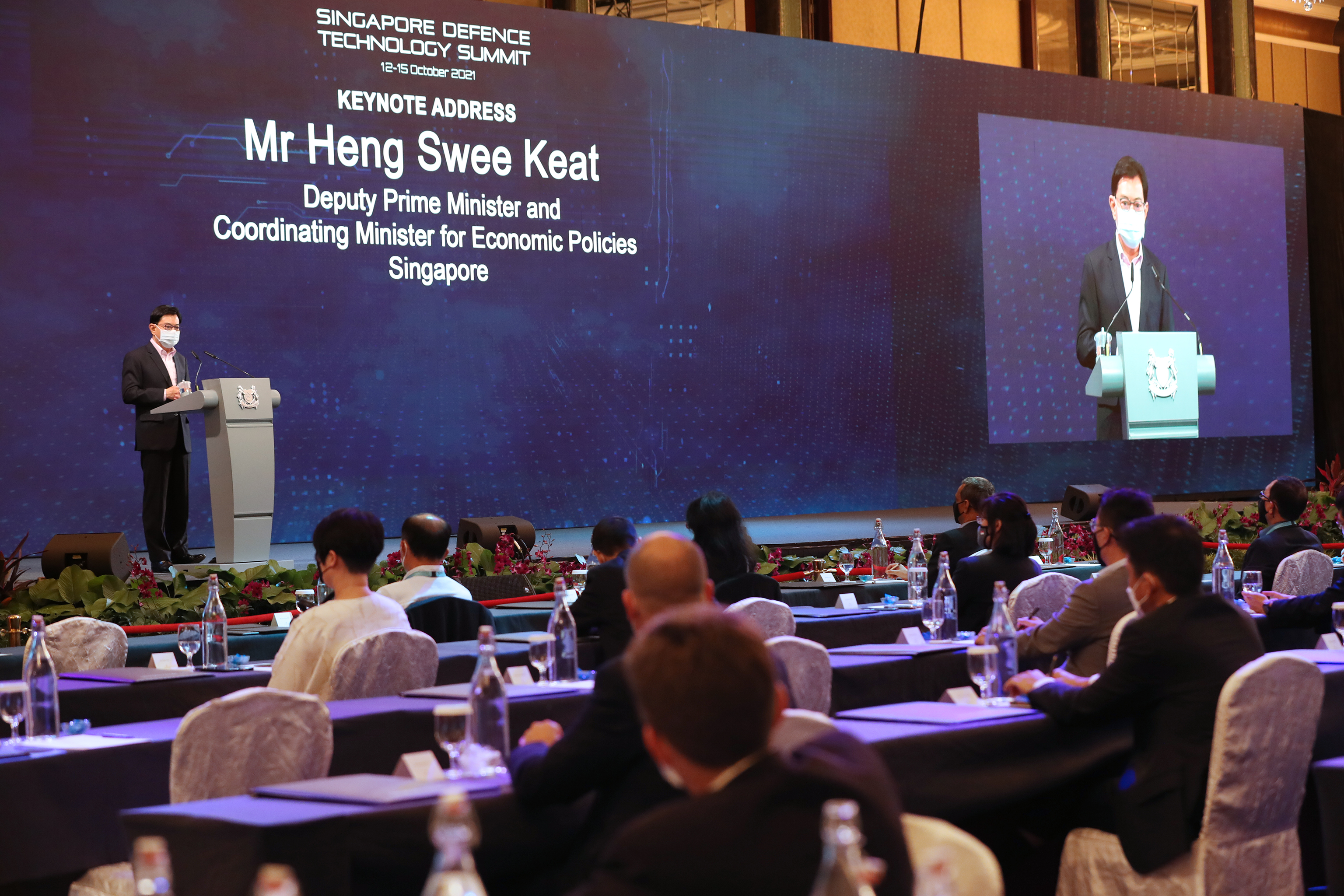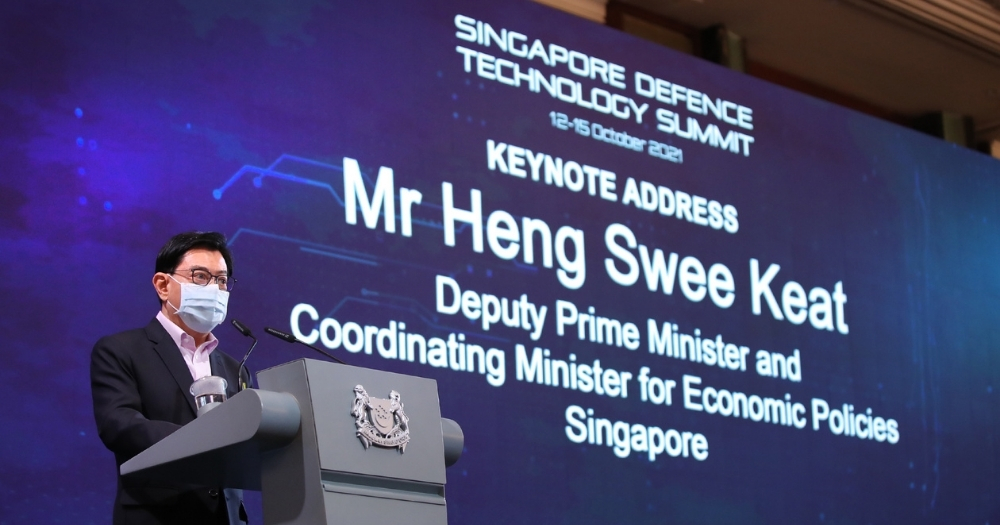Follow us on Telegram for the latest updates: https://t.me/mothershipsg
Deputy Prime Minister and Coordinating Minister for Economic Policies Heng Sweet Keat emphasised the need for defence sector to act on climate change at the 2021 Singapore Defence Technology Summit on Oct. 13.
 Image courtesy of Ministry of Communications and Information.
Image courtesy of Ministry of Communications and Information.
Speaking to the defence technology leaders from around the world, Heng highlighted the "greening" of the military as one of the four key shifts in how the defence sector can think and operate in the coming years.
The other key shifts include the need to counter the expansion of asymmetrical threats, to build adaptive capacity, and to partner with private sector and academia on "dual-use" innovations.
According to the Straits Times, 800 attendees from 23 countries are expected to attend this summit, mostly tuning in virtually.
Climate change is the common enemy for all countries and militaries
Heng said in his keynote speech that environmental sustainability was "less of a consideration for militaries" until recently, especially with the Covid-19 pandemic bringing about a greater emphasis on sustainability.
Heng elaborated on how "climate change's far-reaching impact will not leave the defence sector untouched".
He said that climate change has already heightened inter- and intra state tensions and competition over limited resources and there are also increased demands for militaries to engage in humanitarian assistance and disaster relief efforts in response to extreme weather events.
Climate change is the "common enemy" for all countries and militaries and there is a collective responsibility for all to act.
He said:
"It is thus a collective responsibility for all countries and militaries to fight the common enemy of climate change."
Earlier in June, the North Atlantic Treaty Organisation (NATO) committed to work with its members to achieve a net-zero carbon goal for its troops and installations by 2050.
Heng also mentioned examples of countries shifting away from fossil fuel and switching to or experimenting with the use of sustainable fuel derived from biofuel.
Heng said, "In Singapore, the SAF is also doing its part as well".
SAF going green
Heng then elaborated on the "major moves" that SAF will be making to tackle the disruption of climate change.
This includes the commitment to reduce carbon emission growth by 66 per cent by 2030.
To achieve that goal, SAF will be transiting to a fully electric Army administrative vehicle fleet, with charging infrastructure to be built in camps and bases, Heng said.
Additionally, Heng said that the newer ships, such as the Littoral Mission Vessels, will be equipped with "green technologies", which includes "energy-efficient LED lights".
Heng added that some of the F-16 aircrafts will use "green aviation fuel".
A SAF Sustainability Office has also been set up "to drive the planning and compliance of these sustainability efforts".
At the end of his speech, Heng also emphasised the importance of building trusts and strengthening partnerships among nations to tackle common threats such as pandemics, climate change and terrorist attacks.
"While we each set out to defend our way of life, there is much more that we have in common. Let us collectively confront our common challenges and improve lives. This way, we can build a safer, more resilient, and greener world," Heng concluded.
Related stories
Top image courtesy of Ministry of Communications and Information
If you like what you read, follow us on Facebook, Instagram, Twitter and Telegram to get the latest updates.

